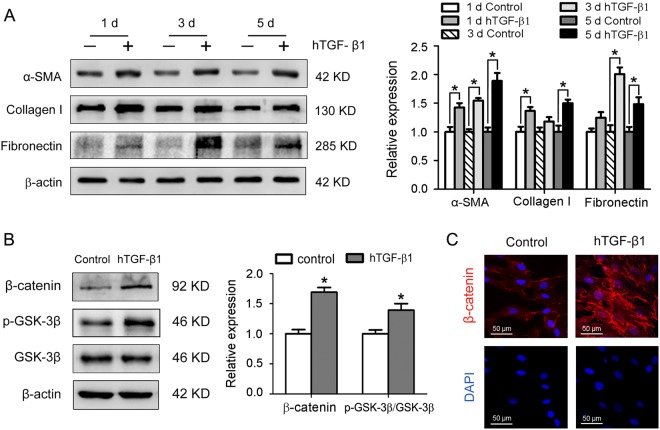Figure 3.
Human transforming growth factor-β1 (hTGF-β1) induces fibrogenic differentiation and Wnt/β-catenin signaling pathway activation in human LR-MSCs. (A) The protein expression levels of α-smooth muscle actin (α-SMA), collagen I and fibronectin in human LR-MSCs cultured in medium supplemented with hTGF-β1 (10 ng/ml) for various durations were examined by Western blot. Representative gel electrophoresis bands are shown, and the levels of the proteins were quantified by densitometry and normalized to the expression of β-actin. Densitometry data are shown as mean ± SD. *P < 0.05 versus control. (B,C) Human LR-MSCs were incubated with hTGF-β1 (10 ng/ml) for 24 h, followed by measurement of several important nodes of the Wnt/β-catenin signaling pathway. (B) The protein expression levels of β-catenin, p-GSK-3β and GSK-3β were determined by Western blot. Representative gel electrophoresis bands are shown, and the levels of the proteins were quantified by densitometry and normalized to the expression of β-actin. Densitometry data are shown as mean ± SD. *P < 0.05 versus control. (C) The expression of β-catenin was assessed by immunofluorescence assay. Nuclei were stained with DAPI (blue).

